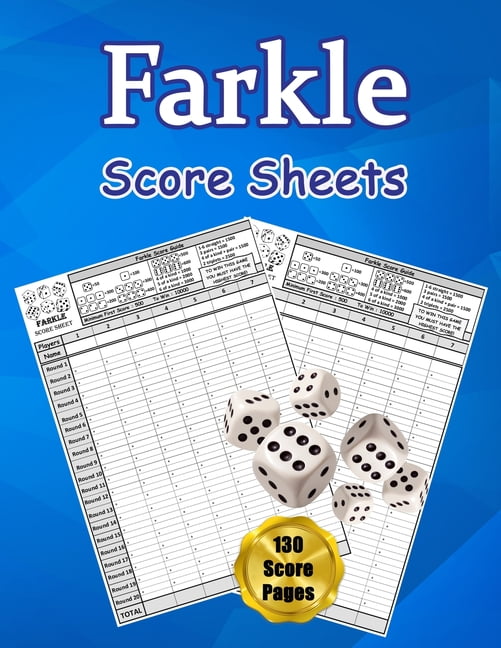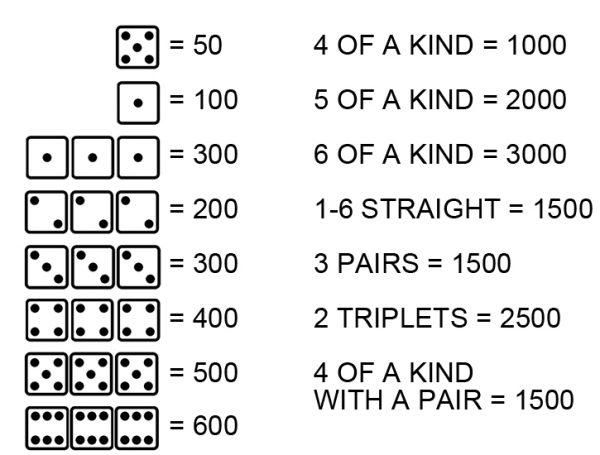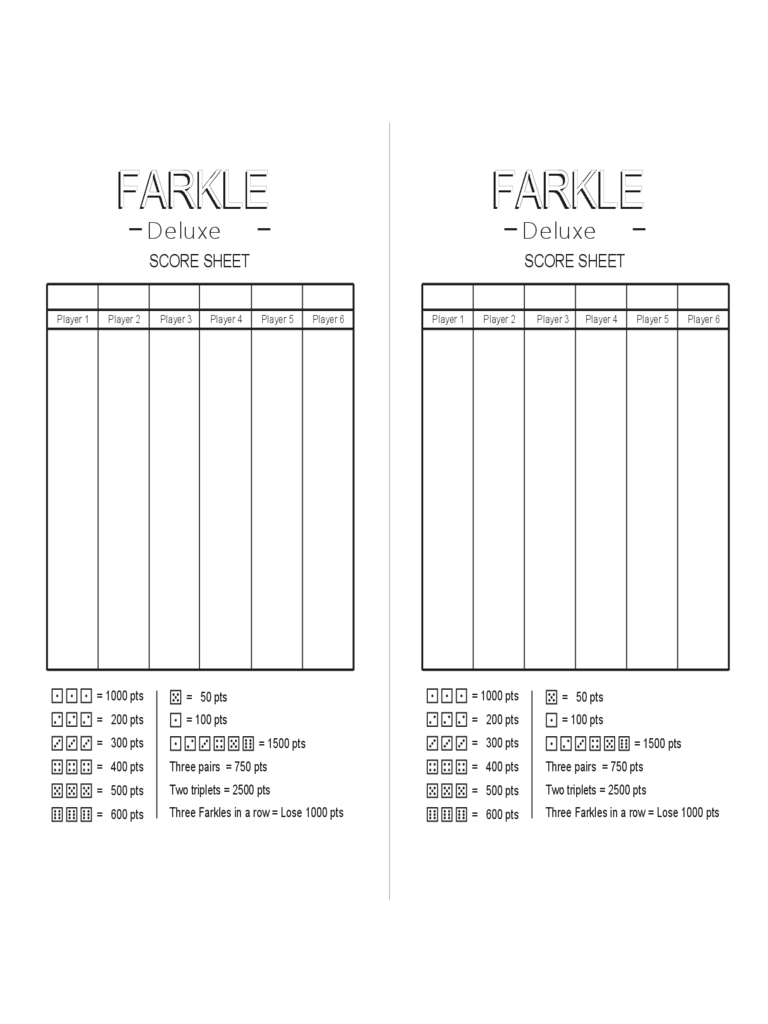
I don’t like the rule though as it eliminates a lot of the already limited strategy from games like Yahtzee. This rule is important to the game as it would play quite a bit differently if you didn’t use it. This is made worse by the decision to not allow players to use dice from previous rolls to score points. The game is basically just an exercise in statistics and luck. Otherwise there really isn’t much strategy to the game. We ended up allowing this as it added a little strategy to the game as you could re-roll low scoring combinations in order to increase your chance of rolling a scoring combination on your next roll. The rules didn’t make it clear if you could choose to re-roll scoring dice instead of scoring them. The strategy in the game is very limited though. If you are overly cautious or take too many risks you will have a hard time winning. The risk/reward mechanic is not bad as what you choose can have a pretty big impact on the game. The biggest problem that I had with Farkle is that the risk/reward element is basically all the game has to offer. Do you want to play it safe and take the guaranteed points leaving other potential points on the table? Or do you risk everything you already earned to try and score more points? I don’t mind risk/reward mechanics, but I wouldn’t call them one of my favorites. Choosing whether to stop or keep rolling is the decision that mostly drives how well you will do in the game. Most of the gameplay comes down to risk versus reward. If this sounds like a lot of other dice games, it should because a similar premise is used by a lot of dice games.

If you should fail to roll any dice that score you additional points though, you lose all of the points that you already earned on your current turn. If you roll a scoring combination you can then choose whether to keep the points you rolled or if you want to keep rolling the dice that you didn’t score to try and score more points. You also score points for rolling ones and fives though. These mostly involve rolling multiples of the same number or a straight. Basically players take turns rolling the dice in order to try and get various dice combinations. Like most dice games, the premise behind the game is pretty simple.

While not terrible, I wouldn’t consider myself a fan. With how popular the game is though, I decided to finally check it out. I had already played quite a few different games with the exact same premise so I didn’t really see any reason to rush and check out the game. Roll the dice and try to get different combinations.

I had never played Farkle mostly because it just seemed like a pretty standard dice game. Since it was created back in 1996, Farkle has become a pretty popular dice game. After everyone has had one chance to beat the high score, the player with the highest score will win the game. Once a player’s score surpasses 10,000 points, all of the players will get one chance to beat the current leader’s total. In their second roll they rolled three fours which scores 400 points and a five which will score 50 points.


 0 kommentar(er)
0 kommentar(er)
